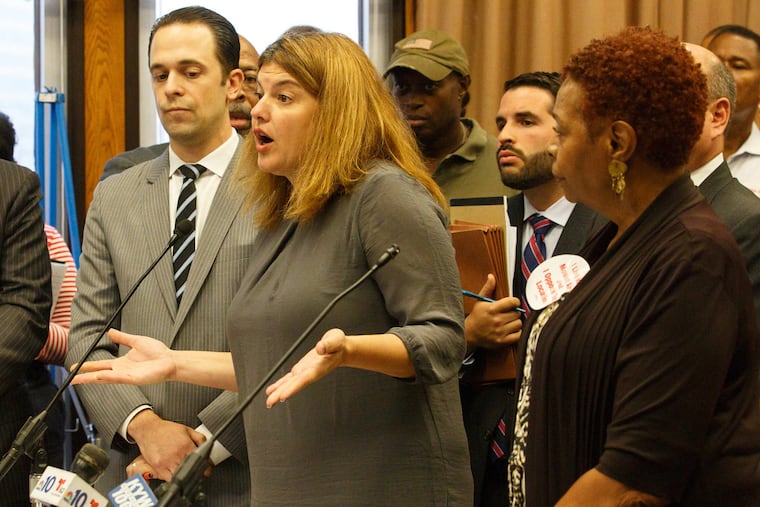Philly’s Zoning Board endured pandemic logjams. Now, the Parker administration plans to speed things up.
When interest rates eventually drop, officials fear another backlog, so the Parker administration wants to act fast.

Cherelle L. Parker’s administration is planning a suite of changes intended to make the city’s Zoning Board of Adjustment (ZBA) function more smoothly, clearing a hurdle to development that bedevils everyone from builders to bar owners.
Although Philadelphia’s zoning board has never been known for smooth functioning, during the pandemic, wait times for a hearing ballooned and it became a substantial obstacle — especially for small-business owners.
Applicants could wait for at least half a year before their cases were considered by the zoning board. For large developers such delays were an annoyance, but for small operators, ZBA months-long wait times could be devastating — especially as rising interest rates made it harder to afford delays. In some cases, cafe owners or other small businesses had to abandon deals while larger developers said that it added to the costs of construction and the cost of rents in the city.
“Now with interest rates, time is money,” said John Mondlak, the interim chief of planning and development, in an April interview. “When interest rates are high, it’s a significant hurt on your carrying costs. If you can get people through the permitting a lot quicker, that saves them money that allows production to increase.”
In recent months, wait times at the ZBA have improved because fewer people are trying to build.
But when interest rates eventually drop, officials fear another logjam. That’s why the Parker administration wants to act now.
Partly the administration will accomplish this by filling all the empty positions on the zoning board.
At the end of the Kenney administration, municipal bodies like the ZBA or the Philadelphia Land Bank were often operating without a full board and so they often lacked the required number of people to make a decision.
Parker is restoring these boards to full strength, but she is also asking City Council to pass a bill that would simplify quorum requirements by allowing votes to move forward if just four of the seven board members are in attendance. A similar move is being sought for the city’s land bank, which saw many real estate deals delayed or canceled due to lack of quorum.
Mondlak said that the tweak “makes sense from a good government standpoint.”
Parker’s team sent the bill to City Council last Thursday, but it was not introduced because Council President Kenyatta Johnson’s team took issue with the precise language in the legislation.
But Johnson’s communications director, Vincent Thompson, says it will be introduced “as soon as we can.”
The administration is also trying to smooth out operations at the zoning board by better educating developers about paperwork requirements before meetings, which are often cluttered by applicants whose cases have to be postponed at the last minute because they didn’t understand what was required of them.
The city is also working on relaxing some of its zoning rules to close out some cases. For example, many affordable housing projects come with a community room, which is technically illegal under many residential zoning districts. That forces affordable housing developers, including the Philadelphia Housing Authority, to go to the ZBA to seek permission for popular features of their buildings that no one opposes.
“If we can figure out ways to keep [cases] from getting to ZBA, that’s one strategy,” Mondlak said in April.
But many cases wind up before the ZBA because district Council members outlaw a variety of uses in their districts to force developers and other business owners to woo community support. The city requires those seeking an exception to zoning rules to meet with a local Registered Community Organization beforehand, and the group’s support can be decisive before the ZBA.
The profusion of zoning overlays, which create a patchwork of different rules across the city, is part of the reason for the ZBA wait times.
In the April interview, Mondlak said that planning officials are meeting with individual Council people to discuss ways to boost housing production to discuss issues like the ever-growing number of overlays.
“Some of them want different zones, they want different uses, they’re specific about certain things,” Mondlak said. “We just have to have those conversations.”